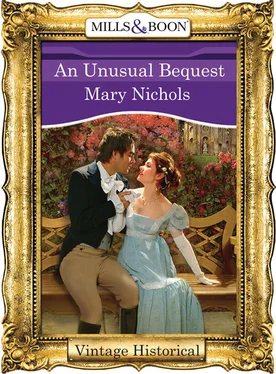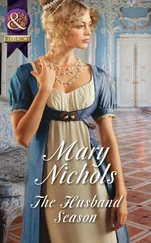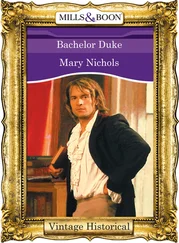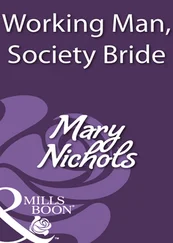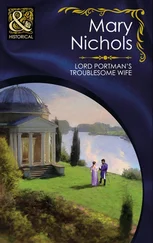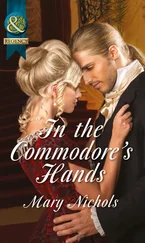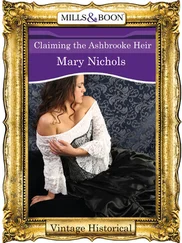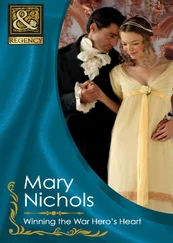Charlotte was chasing children along the beach when Stacey first saw her, running round and round and being caught and then setting off again, her arms wide, her bonnet askew, while the children squealed their delight. He reined in his horse to watch. His father had told him of a school in Ipswich that might take Julia and he had decided to ride along the coastal path rather than take the stage. He didn’t know why, except that it might be quieter and more conducive to problem solving than being bumped about in a coach and having to listen to his fellow travellers trying to make conversation. And he could take his time. Why he wanted to delay, he did not know. He strongly suspected it was because he was not sure he was doing the right thing in trying to pack his daughter off to strangers. Wasn’t that abrogating his responsibility? In the meantime she was safe enough at Malcomby Hall; his father had promised to keep a closer eye on her.
He had been deep in thought, clopping slowly along the cliff-top path when the sound of childish laughter brought him up short. How happy they sounded. He had ridden to the edge of the cliff and sat looking down at the beach. How many children were there? Ten, a dozen? Surely they could not all belong to the woman? She was how old? It was difficult to tell at that distance, but surely not old enough to have borne so many? And they were all different: some were dark, others fair, some warmly clad, others dressed in little more than rags. All but the woman were barefoot and a row of little boots and shoes stood sentinel on the side of the steep path that led down from the cliff top to the beach. The woman herself was dressed in a simple black gown and cape. Mourning, perhaps? But should a woman in mourning be laughing so joyfully?
Charlotte stopped suddenly, too out of breath to continue, and the children crowded round her, chattering excitedly. It was then she looked up and saw him. He was astride a big white stallion, dressed in a serviceable riding coat and a big cape. He doffed his tall riding hat and bowed to her. Discomforted, she looked away and began urging the children to gather up the seaweed and shells they had collected, while retying her bonnet, which had slipped down her back on its ribbons. Then she led them up the path towards him. He had not moved. Her first thought had been that it was Cecil who had come to claim his inheritance, but, as she drew nearer, she realised it was not. This man was a stranger and a very handsome one at that. Again, he doffed his hat, his brown eyes alight with amusement. ‘Good day, ma’am.’
‘Good day, sir.’
‘You have a very large family, ma’am.’ She was extraordinarily beautiful, he realised, with a clear unblemished complexion and eyes that were neither green nor blue, but something in between, and they looked him straight in the eye.
She smiled. ‘Yes, haven’t I? But I cannot claim them all for myself. These two are mine…’ She drew Lizzie and Fanny to her. ‘The others are my pupils.’
‘Ah, you are a schoolteacher.’
She opened her mouth to correct him, then changed her mind. Today she was a schoolteacher and perhaps, if Cecil proved not to be amenable, that was all she ever would be. She would try out the role on a stranger.
She loved teaching the little ones of the village; they were so receptive and eager to learn. Their parents had been against the idea at first, demanding to know why they needed an education; they themselves had managed without one and so would their sons and daughters. Charlotte and the Reverend Fuller had persuaded them to agree to send the children to school, so long as they were not needed to help on the farms with which the countryside around was dotted. Picking stones off the fields, scaring crows, watching the sheep, and helping with the harvest would always take precedence, and some were expected to look after younger siblings, but as they were allowed to bring the little ones to the classes, they gathered each afternoon in an unused coach house at the Rectory, which had been converted into a classroom, and here they learned to read and count. The bright ones among them were learning to write and to compose little stories, with particular attention being paid to their spelling and grammar.
Nor was that all; she taught them a little history and geography and took them out in the lanes and on to the beach to study nature. Being country children, they knew as much of country lore on a practical level as she did, but they all enjoyed the outings. And that included Lizzie and Fanny, whom she took with her. Lord Hobart, before he became too ill to know what was going on around him, had remonstrated with her for allowing her daughters to associate with the lower orders, but she had persuaded him there was no harm in it and it might do the girls some good.
The other children had been wary of them to begin with; Lizzie and Fanny, clad in their warm clothes and stout shoes, were inclined to be a little haughty, aware of their superior status, but they had soon learned to unbend. It was surprising, or perhaps it was not, just how much they were able to teach the other children and how much they learned themselves. Not all of it desirable!
Today, with her mind full of the loss of her father-in-law and uncertainty about the future, she had been unable to concentrate on lessons and had decided to bring the children to the beach to study the life in the pools left behind by the tide. It was the first really mild day of the year; the turbulent winds and heavy rain that had drenched the countryside from the beginning of the year right up until the day of Lord Hobart’s funeral had gone and now the air was clear. Down on the beach, the sea rippled gently over the sand, leaving behind little rock pools, teaming with microscopic life. It was so pleasant there and the children so excited, they had ended up playing a game of tag. She had been as energetic as the children, behaving like a child herself. Her hat had come off and the pins had come out of her hair, which could not be described as fair, but was not dark enough to be called auburn. To her it was a nothing colour, but to the observer on the cliff top it was delightfully unusual.
To have her behaviour witnessed by this rather superior horseman, who obviously found her conduct amusing, was disconcerting, but it was too late to revert to being the lady of the manor. She smiled. ‘Yes, sir. Today we are having a little break from formal lessons to learn about the sea and the tides and the creatures who live in the rock pools.’
‘So, I see.’ Again that smile. ‘I would that my school days had been as instructive.’ He was bamming her, she knew.
‘You did not like school?’ The children had grouped themselves around her, staring up at the man in curiosity, almost as if protecting her. She turned to them. ‘Put your shoes on, children.’
He watched idly as they obeyed, the older ones helping the smaller ones. One or two, he noticed, had no footwear at all. They were village children, being taught at a dame school, he supposed, but an unusual one. Dame schools usually confined themselves to teaching children their letters, and not even that sometimes. The teachers were often nearly as ignorant as their pupils, but this one was not like that. She was neat and well spoken and elegant, even in her plain black gown. ‘I liked it well enough,’ he answered her. ‘A necessary evil.’
‘How can you call it an evil? You undoubtedly had a privileged education, which is more than these little ones will have.’ She did not know why she was being so defensive towards a stranger, but he had put her hackles up, sitting there on that very superior horse with his very superior air, criticising her. ‘I can teach them little enough, but I do not think they see it as an evil.’
Читать дальше
